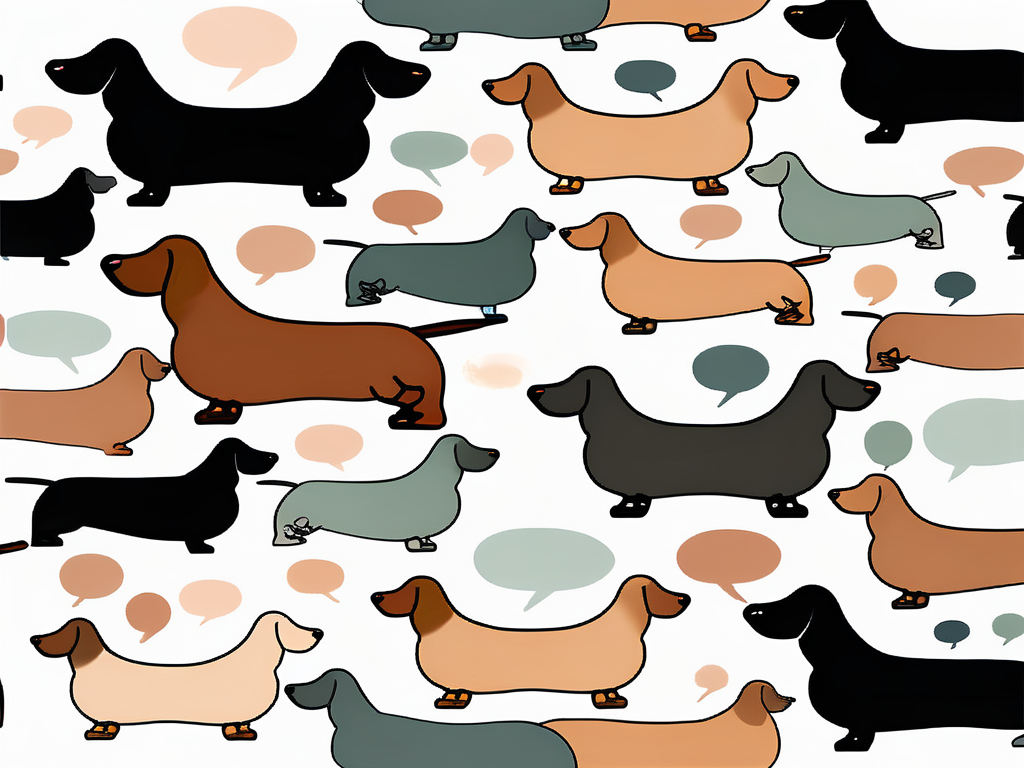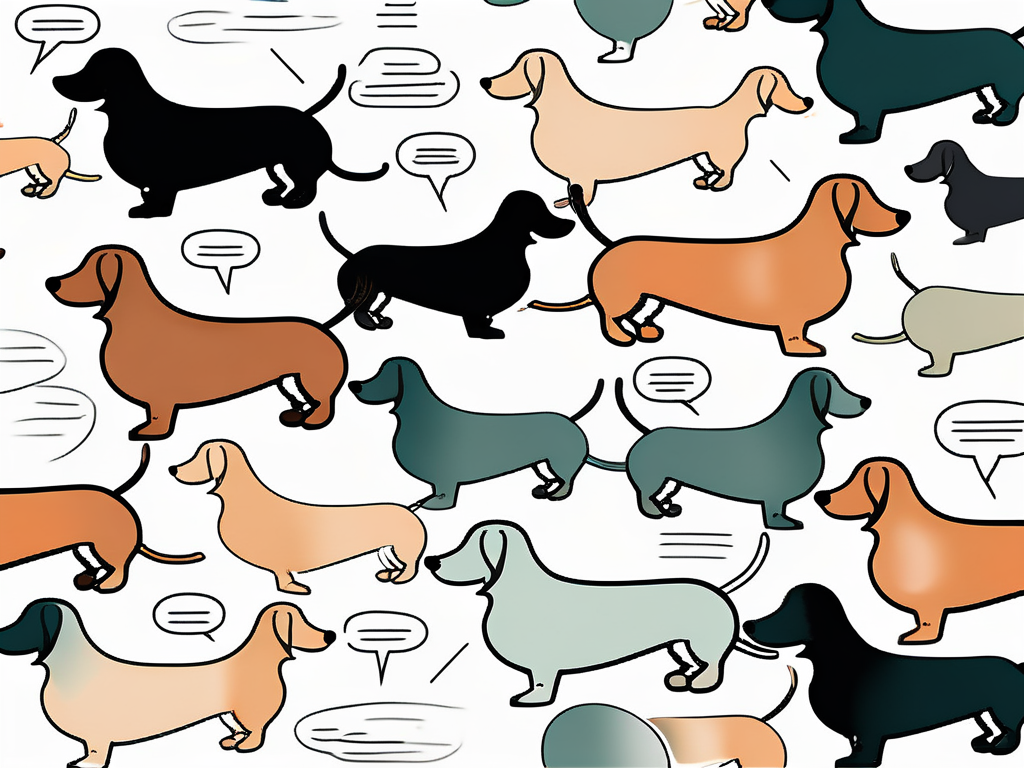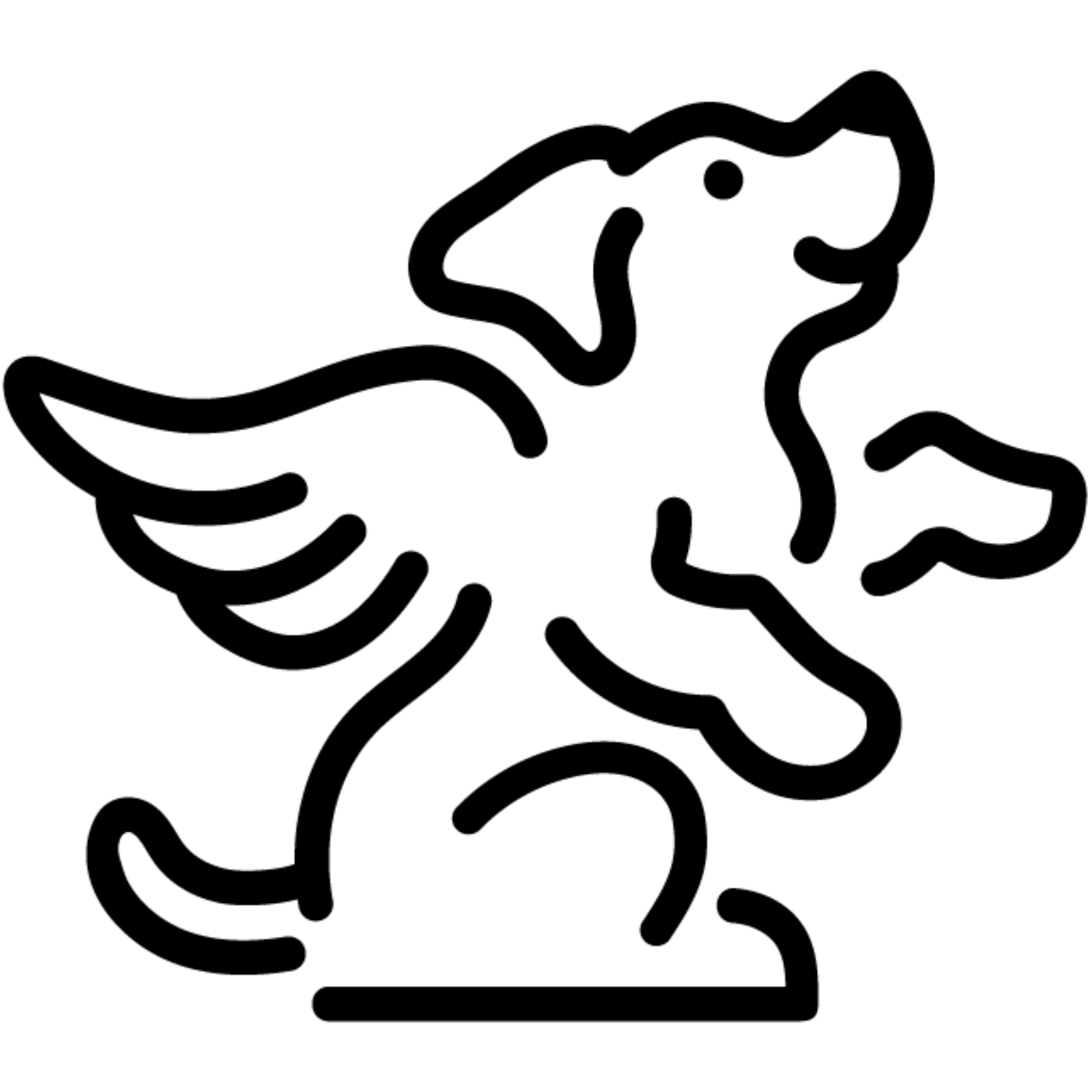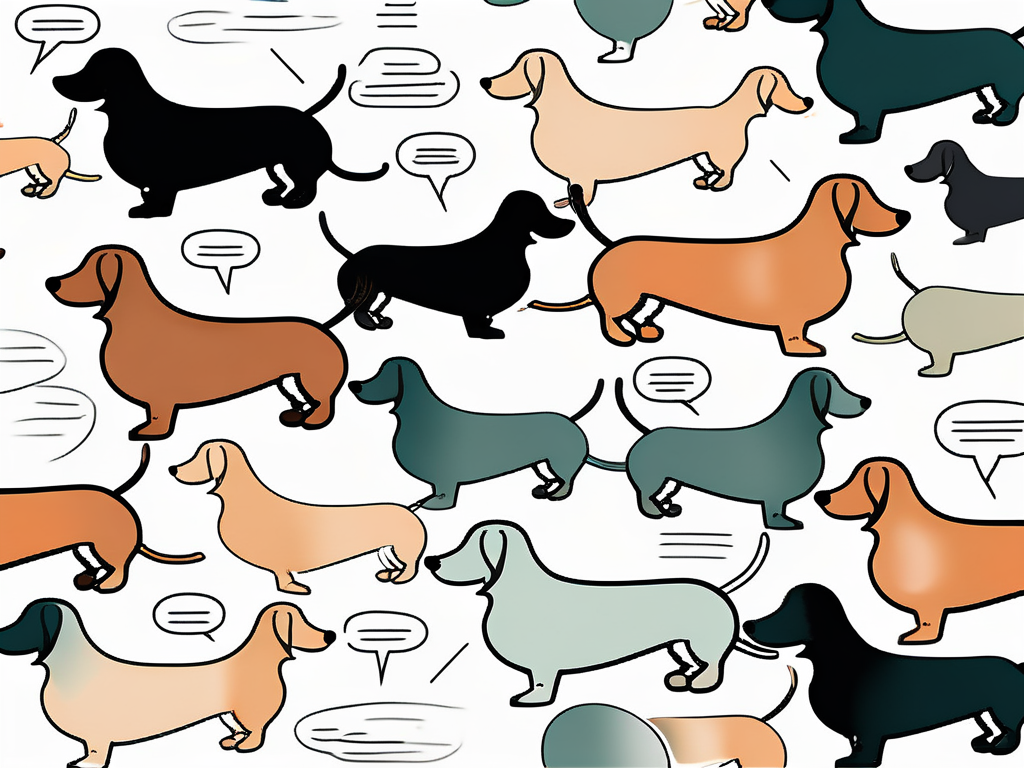Are you ready to master the correct pronunciation of one of the most challenging words in the English language? That's right, we're talking about the adorable and oh-so-cute Dachshund! This article will delve into the origins of the word, break down the pronunciation, explore the influence of regional accents, discuss the role of phonetics, and provide you with tips to remember the correct pronunciation. So, let's embark on this linguistic journey together!
Understanding the Origin of the Word 'Dachshund'
Before we dive into the world of pronunciation, let's take a moment to understand the fascinating roots of the word 'Dachshund.' This quirky canine companion originates from Germany, where it was developed to hunt badgers and other burrow-dwelling animals. So, it's no surprise that 'Dachshund' in German translates to 'badger dog' or 'burrow dog.'
The history of the Dachshund is deeply intertwined with the hunting culture of Germany. These dogs were prized for their ability to track and chase prey into tight spaces, showcasing their tenacity and intelligence in the field. Their elongated bodies and short legs were specifically bred to navigate underground tunnels with ease, making them formidable opponents for burrowing animals.
The German Roots of Dachshund
In German, 'dachs' means 'badger' and 'hund' means 'dog.' Combine the two, and you've got 'Dachshund,' a breed specifically designed for the challenging task of hunting badgers in their underground dens.
German folklore often depicts the Dachshund as a symbol of courage and determination, revered for its unwavering loyalty to its human companions. These traits have been passed down through generations, shaping the Dachshund into the beloved and spirited breed we know today.
The English Adaptation of Dachshund
When this unique breed made its way to English-speaking countries, the word 'Dachshund' underwent a bit of a transformation. English speakers put their own spin on the pronunciation, giving us the anglicized version we know and love today.
Despite the linguistic shift, the essence of the Dachshund remains rooted in its German heritage, embodying a rich history of hunting prowess and companionship that continues to capture the hearts of dog lovers around the world.
Breaking Down the Pronunciation
Now that we have a solid understanding of the word's origins, let's tackle the most crucial aspect: pronouncing 'Dachshund' correctly! Strap on your linguistic seatbelt as we explore the intricacies of this charmingly complex word.

Originating from Germany, the word 'Dachshund' is a delightful blend of two German words: 'Dachs,' meaning badger, and 'Hund,' meaning dog. This unique combination reflects the breed's original purpose as a badger-hunting dog, known for its tenacity and courage.
Syllable by Syllable Guide
When it comes to pronouncing 'Dachshund,' it's essential to break it down one syllable at a time. Let's take it slow and savor each sound:
- 'Dachs' (rhymes with 'fox') - Start with a soft 'd' sound, followed by 'aks' (like the 'x' in 'fox' but with an 's' sound at the beginning).
- 'Hund' (rhymes with 'hoond') - Pronounce 'hund' as you would 'hoond,' with a short 'u' sound.
Delving deeper into the pronunciation, mastering the German 'ch' sound in 'Dachshund' adds an authentic touch to your articulation. This sound, similar to the Scottish 'loch,' requires a throaty, guttural noise that may take some practice to perfect.
Common Mispronunciations
It's time to address some common mispronunciations. We've all heard them, and you might have even made a few of these pronunciation blunders yourself!
- Da-shund: Although this may seem like a reasonable attempt, it falls short. Remember, we're looking for that 'aks' sound!
- Dash-hound: While it's tempting to compare 'Dachshund' to a speedy hound, we need to focus on the correct syllables. Don't forget about that 'dachs' part at the beginning!
The Influence of Regional Accents on Pronunciation
Now, let's delve deeper into how regional accents can significantly impact the pronunciation of the intriguing word 'Dachshund.'

Understanding the nuances of regional accents enriches our linguistic journey, offering a fascinating glimpse into the diverse tapestry of language. The way 'Dachshund' is articulated can vary not only between countries but also within regions, reflecting the intricate interplay of culture and speech.
American English Pronunciation
In the vast landscape of American English, the pronunciation of 'Dachshund' undergoes a delightful metamorphosis. From the casual 'dox-en' to the playful 'dash-un,' each rendition adds a touch of individuality to this beloved word. While these variations add a sprinkle of charm to our conversations, let's not forget the essence of linguistic authenticity and strive to honor the original German pronunciation.
British English Pronunciation
Embark on a linguistic adventure across the enchanting realm of British English, where 'Dachshund' encounters a delightful twist. The Brits infuse their unique charm into the pronunciation, giving rise to delightful variations like 'daks-hund' or 'dax-hund.' These subtle differences not only reflect regional diversity but also highlight the beauty of linguistic evolution. As we savor these distinct pronunciations, let's pay homage to the word's German roots and endeavor to maintain a semblance of accuracy in our articulation.
The Role of Phonetics in Pronouncing 'Dachshund'
Phonetics can help us navigate the intricate world of pronunciation. Here's how it can assist us in correctly saying 'Dachshund.'
Understanding the phonetics of a word like 'Dachshund' involves delving into the intricate details of how each sound is articulated. The initial 'd' sound, followed by the 'ɑː' vowel sound, sets the foundation for the word. Moving on to the 'ks' cluster, where the 'k' and 's' sounds blend together seamlessly, leading into the short 'ʊ' sound and ending with the 'nt' combination, requires a precise articulation of each phoneme to pronounce 'Dachshund' accurately.
Phonetic Spelling of Dachshund
Phonetically, 'Dachshund' can be represented as /dɑːks.hʊnt/. This breakdown allows us to grasp the specific sounds needed to pronounce the word accurately.
Breaking down the phonetic spelling further, we can observe how each symbol in the transcription corresponds to a distinct sound in the word. The symbol 'd' represents the voiced alveolar stop, 'ɑː' signifies the open back unrounded vowel, 'k' stands for the voiceless velar plosive, 's' represents the voiceless alveolar fricative, 'h' denotes the voiceless glottal fricative, 'ʊ' signifies the near-close near-back rounded vowel, and 'nt' combines the alveolar nasal and voiceless dental fricative sounds. Mastering the pronunciation of each of these phonetic components is key to saying 'Dachshund' correctly.
The International Phonetic Alphabet (IPA) and Dachshund
The International Phonetic Alphabet (IPA) is a powerful tool for understanding the sounds of words across languages. In the IPA, 'Dachshund' is represented as /ˈdɑːks.hʊnt/. By using this system, you can better familiarize yourself with the unique sounds of the word.
Exploring the word 'Dachshund' within the framework of the International Phonetic Alphabet opens up a world of linguistic precision. The notation '/ˈdɑːks.hʊnt/' not only captures the individual sounds of the word but also provides insight into stress placement. The primary stress on the first syllable 'dɑːks' and the secondary stress on the second syllable 'hʊnt' are indicated by the diacritics in the IPA transcription. This attention to stress patterns is crucial in mastering the rhythmic flow of 'Dachshund' when spoken aloud, adding another layer of complexity to its pronunciation.
Tips to Remember the Correct Pronunciation
Finally, let's explore some fun ways to lock in the correct pronunciation of 'Dachshund.'

Originating from Germany, the word 'Dachshund' is a combination of two German words: 'Dachs,' which means badger, and 'Hund,' which means dog. This unique breed was originally bred for hunting badgers, making their name quite fitting.
Rhymes and Mnemonics
Rhymes and mnemonics can be helpful tools for memorization. How about this one: "Dachshund - a dog so grand, with a name that sounds like 'Dax' and 'Hound.'" Get creative and come up with your own clever rhymes!
Furthermore, the Dachshund's elongated body and short legs give them a distinctive appearance, often described as 'wiener dogs' due to their resemblance to sausages. This visual image can also aid in remembering the pronunciation of their name.
Practice Techniques for Pronunciation
Pronouncing 'Dachshund' might require a bit of tongue-twisting practice. Repeating the syllables individually, then gradually speeding up, can help train your mouth muscles to say it fluently. Remember, practice makes perfect!
Additionally, the Dachshund's playful and curious nature makes them popular companions and excellent family pets. Their loyalty and affectionate demeanor have endeared them to many households around the world, further solidifying the importance of correctly pronouncing their name.
Now that you're armed with the knowledge of the correct pronunciation of 'Dachshund,' go forth and impress your friends, family, and fellow dog lovers with your newfound linguistic expertise. Embrace the challenge, have fun, and let the delightful world of 'Dachshund' open up to you!




Share:
Guide to Dachshund Puppies
The Average Lifespan of a Dachshund